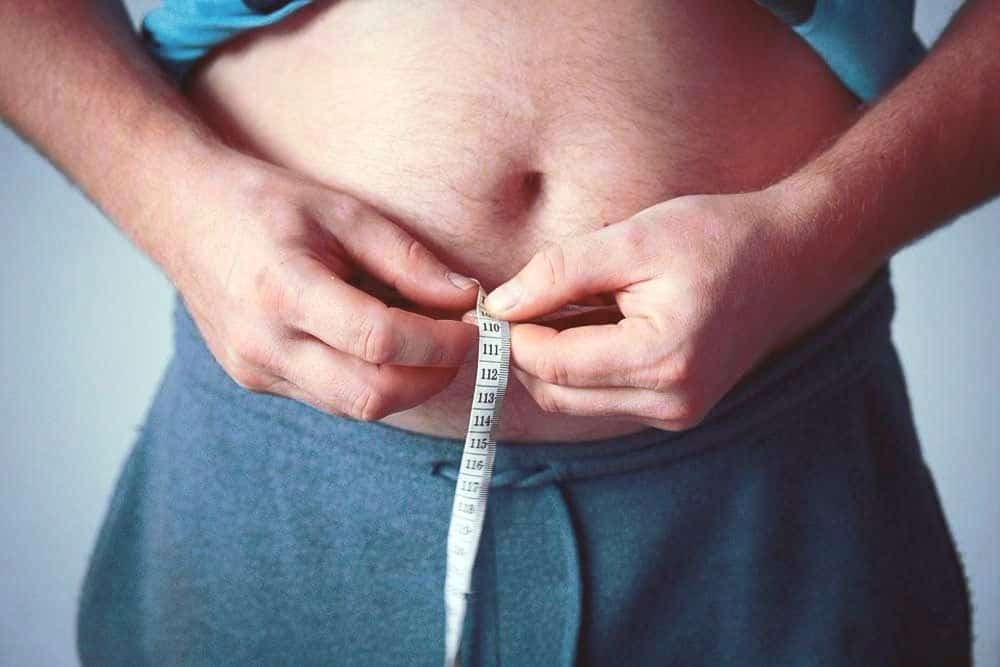More and more research is beginning to link sleep disorders to the problem of gaining weight. If you are eating healthy, exercising regularly, and living a generally healthy lifestyle but still can shed weight, you may need to consider the fact that you might have a sleeping disorder. Although missing just one or two nights of good sleep might not be significant, if you find yourself in a pattern of insomnia, nighttime wakefulness, or other sleep issues, then it may be helpful to catch it before it becomes a severe health problem.
The biggest frustration that many sleep disorder sufferers struggle with is that this becomes a vicious cycle. While sleep disorders can cause weight gain, the additional weight can lead to more sleeping problems and cause more weight gain, and may eventually lead to a dangerous condition called Sleep Apnea.
Sleep Apnea is a sleeping disorder in which regular breathing which should happen during the night does not. Some people with sleep apnea snore, wake with gasping or choking, have trouble staying asleep, or wake in the morning feeling more tired than when they went to sleep. One cause of sleep apnea can be weight gain as additional pounds on the body can put pressure on the neck and tend to close up the breathing passages. This type is called Obstructive Sleep Apnea (OSA).
Weight Gain Due to Sleep Apnea
Because sleep apnea can cause significant interruptions in getting a good night’s sleep, there is likely a link between this disorder and weight gain. One study conducted at the University of Colorado Boulder showed that men who were only allowed to sleep for five hours each night gained around two pounds within just one week!
Although getting less sleep on its own probably doesn’t cause weight gain, the results are that people have a tendency to be more sluggish, which means that they exercise less and don’t make healthy eating choices. Poor diets lead to poor sleep, and poor sleep leads to poor diets. The cycle continues and can very easily be connected with sleep apnea.
If sleep apnea disrupts healthy sleep, then people with this condition could easily gain many pounds within just a few months of struggling with this sleep disorder. The fact that being overweight is considered a risk factor for sleep apnea means that minimizing it as much as possible is critical to a person’s overall health as well as sleep patterns.
Does Sleep Apnea Cause Weight Gain?
Although there may not be any direct link between sleep apnea and resulting weight gain specifically, the connections are easy to follow along with various sleeping disorders.
Obstructive Sleep Apnea (OSA) is a condition where the tissues in the mouth and throat cause obstructions to the airways during sleep. This may be related to gravity pulling the back of the tongue or uvula back into the airway. Even the fleshy fat pads that act as a lining in the neck may protrude into the breathing passages and block the body’s ability to get air. In children this can be caused by swollen adenoids or tonsils, but the cause of OSA in adults is very often due to a large neck or carrying too much weight.
The cycle begins with sleep deprivation that can stem from a variety of reasons, whether related to stress, illness, pregnancy, or even having to go to the bathroom very often in the night. These sleep disruptions can lead to fatigue, fatigue can lead to weight gain, and weight gain can lead to sleep apnea.
The reverse may also be true in that a person may begin with a form of sleep apnea that is not necessarily due to weight gain (Central Sleep Apnea—caused by the nervous system). But the lack of sleep leads to weight gain and fatigue, leading to unhealthy eating and exercise habits, and eventually resulting in the addition of Obstructive Sleep Apnea to the existing sleep disorder.
How Does Sleep Apnea Cause Weight Gain?
Sleep Apnea, if left untreated, can have devastating effects on the health of your body. Low quality sleep means that the body’s ability to manage insulin and blood sugar can begin to fail. The body will also produce less Leptin, which is the hormone that is related to feelings of hunger. In addition, a sleep deprived body may produce extra amounts of Ghrelin, the hormone that tells you that it’s time to eat.
Symptoms of sleep deprivation may cause irritability, brain impairment, memory problems, lack of attention, increased risk of heart problems, aches, impaired immune system, and risk of diabetes. All of these factors combine together to create an increased risk of obesity, and shedding pounds can feel impossible due to a lack of proper sleep.
Can I Cure Sleep Apnea with Weight Loss?
The answer to whether or not sleep apnea can be cured with weight loss really depends on the original cause of your sleep apnea to begin with. If you have the more common type, Obstructive Sleep Apnea (OSA), then the act of losing weight might help. This is because the fleshy part of a larger neck will often fall into the breathing passages and obstruct the airflow.
Losing weight may be one natural way to minimize the effect of sleep apnea on your health. Although it may seem daunting when you’re fatigued and exhausted, even losing just a few pounds can help to provide relief from sleep apnea symptoms and improve health. Try taking minimal steps toward living a healthier lifestyle and you may find that your sleep disorder improves as well.
Conclusion
Other natural options for sleep apnea care, are the use of a sleep apnea pillow or adjustable mattress to help with side or stomach sleeping. These, in addition to weight loss, can reduce the number of sleep apnea events and reduce the problems associated with the condition. (Of course, it is always recommended to see a medical professional if you suspect that you have sleep apnea.)
